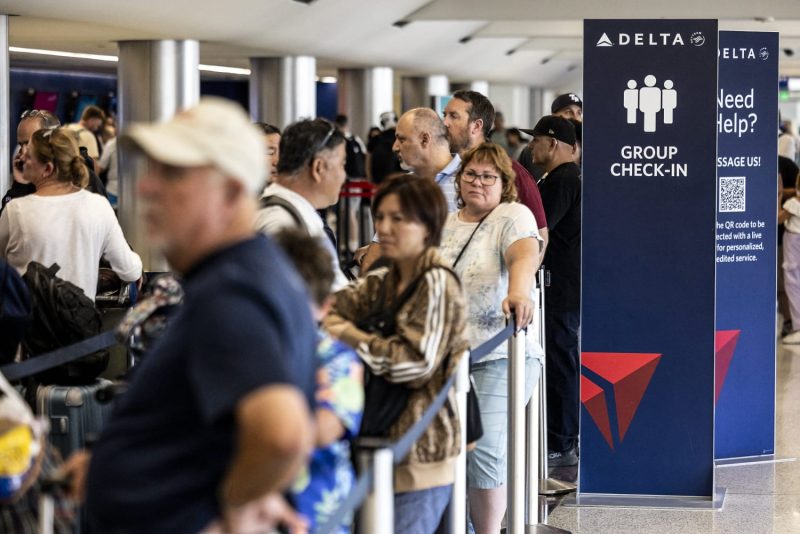Delta Cancels Hundreds More Flights as Its Recovery from Global CrowdStrike, Microsoft Outage Lags
Delta Airlines has been facing significant challenges in its recovery efforts following the global CrowdStrike and Microsoft outage. The airline recently announced the cancellation of hundreds more flights, adding to the disruption that has already affected thousands of passengers. This ongoing crisis highlights the vulnerabilities that modern businesses face in a digitally interconnected world.
The CrowdStrike and Microsoft outage, which occurred due to a cybersecurity incident, had far-reaching implications for Delta Airlines and other companies relying on these services. In Delta’s case, the disruption led to widespread flight cancellations and delays, inconveniencing passengers and causing financial losses for the airline. The incident served as a wake-up call for the aviation industry, emphasizing the critical need for robust cybersecurity measures and contingency plans.
Despite efforts to mitigate the impact of the outage, Delta has struggled to fully recover and resume normal operations. The airline’s decision to cancel hundreds more flights underscores the complexity of the challenges it faces in restoring its services. This situation raises questions about Delta’s preparedness to handle large-scale disruptions and its ability to adapt swiftly to unforeseen circumstances.
In response to the crisis, Delta has been working tirelessly to address the operational issues stemming from the CrowdStrike and Microsoft outage. The airline has been communicating with affected passengers, rebooking flights, and offering compensation where possible. However, the continued cancellations indicate that the recovery process is taking longer than anticipated, highlighting the need for better risk management strategies and contingency plans in the future.
The disruption caused by the global outage has also shed light on the interconnected nature of today’s digital infrastructure. As businesses become increasingly reliant on third-party services and cloud-based technologies, they must be prepared for potential vulnerabilities and be proactive in addressing cybersecurity risks. The Delta Airlines incident serves as a cautionary tale for companies across industries, emphasizing the importance of investing in cybersecurity measures and building resilient systems.
Moving forward, Delta and other companies affected by the CrowdStrike and Microsoft outage must reassess their cybersecurity protocols and crisis management strategies. By conducting thorough post-incident reviews and implementing lessons learned, organizations can better prepare for future disruptions and minimize the impact on their operations and customers. Only through proactive risk management and robust cybersecurity practices can businesses navigate the complexities of the digital age and safeguard their operations against unforeseen threats and vulnerabilities.


























